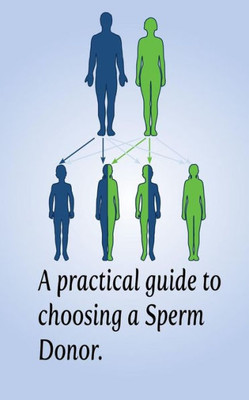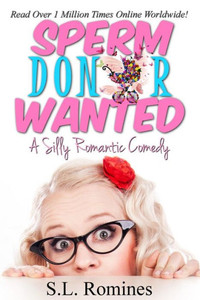
A Practical Guide To Choosing A Sperm Donor: Sperm Donation & Heredity (By Mark Guy)
CreateSpace Independent Publishing Platform
ISBN13:
9781532941443
$9.32
This book will guide you in choosing a sperm donor based on Mendelian Inheritance. It will give you the chance to get the best start for your new family. From reading this book you will understand why it is not enough just to know who your sperm donor is, but also his ancestry as far back as his great grandparents, not just in health, but in intelligence, morals and looks. Ywill understand that most clinics, the NHS, and 'private social network' donors are committing a grave error. AUTHORS: C.W. SALEEBY P. POPENOE M.G.V. TYSON Sperm Donation & Mendelian Inheritance It is important when starting a family under the circumstances relating to a sperm donor to consider Mendelian inheritance . As by using a sperm donor, one does not have to give any share to feeling and is at liberty to only give the entire share to thought. One should ask questions as: What looks will my child inherit from the sperm donor? What base intelligence will my child inherit from the sperm donor? What strength, physical and mental will my child inherit from the sperm donor? Will my child inherit a long youthful life from the sperm donor? Will my child inherit blonde hair and blue eyes from the sperm donor? Is that what I want? It is the duty of anyone seeking to start a family via sperm donation to determine the Mendelian fitness of the donor and to estimate the prospect of the future child's life. To ask whether nature in general contributes more to a man than nurture is futile; but it is not at all futile to ask whether the differences in a given human trait are more affected by differences in nature than by differences in nurture. It is easy to see that a verdict may be sometimes given to one side, sometimes to the other. Albinism in animals, for instance, is a trait which is known to be inherited, and which is very slightly affected by differences of climate, food supply, etc. The limited effect of nurture in changing nature is in some fields a matter of common observation. The man who works in the gymnasium knows that exercise increases the strength of a given group of muscles for a while, but not indefinitely. There comes a time when the limit of a man's hereditary potentiality is reached, and no amount of exercise will add another milli-meter to the circumference of his arm. Similarly the handball or tennis player someday reaches his highest point, as do runners or race horses. A parallel case is found in the students who take a college examination. Half a dozen of them may have devoted the same amount of time to it--may have crammed to the limit--but they will still receive widely different marks. These commonplace cases show that nurture has seemingly some power to mold the individual, by giving his inborn possibilities a chance to express themselves, but that nature says the first and last word. Francis Galton hit on an ingenious and more convincing illustration by studying the history of twins.
- | Author: Mark Tyson
- | Publisher: CreateSpace Independent Publishing Platform
- | Publication Date: Apr 26, 2016
- | Number of Pages: 98 pages
- | Language: English
- | Binding: Paperback
- | ISBN-10: 1532941447
- | ISBN-13: 9781532941443
- Author:
- Mark Tyson
- Publisher:
- CreateSpace Independent Publishing Platform
- Publication Date:
- Apr 26, 2016
- Number of pages:
- 98 pages
- Language:
- English
- Binding:
- Paperback
- ISBN-10:
- 1532941447
- ISBN-13:
- 9781532941443





